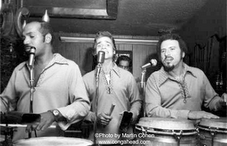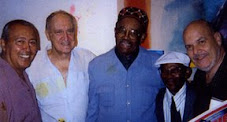 Havana
Havana in 1941 was one of the gayest cities on earth. With pristine beaches, lively music, tobacco, rum and beautiful women in abundance, it was a tropical paradise in the sun. Who could choose a better location to wait out the war in
Europe?
In the upper-class sector of Havana, Vedado, about thirty families were living, not as Cuban refugees, but Jewish refugees. They had managed to escape the Nazi persecution but they lived from day to day in despair, with no means of support other than donations from Jewish charities. Many had endangered relatives in Europe. With little chance of returning to the ruins of their former homes, they survived as best they could. Not permitted to hold jobs in Cuba, they were desperate people.
Among the professionals, artists and businessmen, were many tailors whose wives took needle and thread in hand and made neckties for sale. During the Great Depression, this strategy had earned poverty stricken Jewish families money for food. The gift of a necktie for father at Christmastime arose then, during the birthdays and holidays, as a result of this activity.
Since Christmastime encouraged the greater display of decoration, these Christmas ties enlivened the male wardrobe, adding cheer to a sad time in America, and helped to break the somber style of dress in general in America.
In Cuba, however, the tropical climate and the absence of air-conditioning meant a need for loose clothing. An example is found in the typical Cubavera, a shirt with an unbuttoned neckline and no tuck-in at the waist. Even today, neckties are being abandoned in greater numbers around the world.*
When the Jewish refugees saw me passing by daily, they became more and more curious, and more suspicious of me. Could I also be a refugee, they wondered? I was approached by the salesman one afternoon, who had at last spotted a likely customer. Here was a gentleman who actually was wearing a tie in Havana!
It was an easy sale. I bought a tie since I could not only use one, but because the price was cheap. Besides, it was practical souvenir of Cuba to take with me when I returned home, to remind me of those who had lost theirs.
* Climate change?



No comments:
Post a Comment